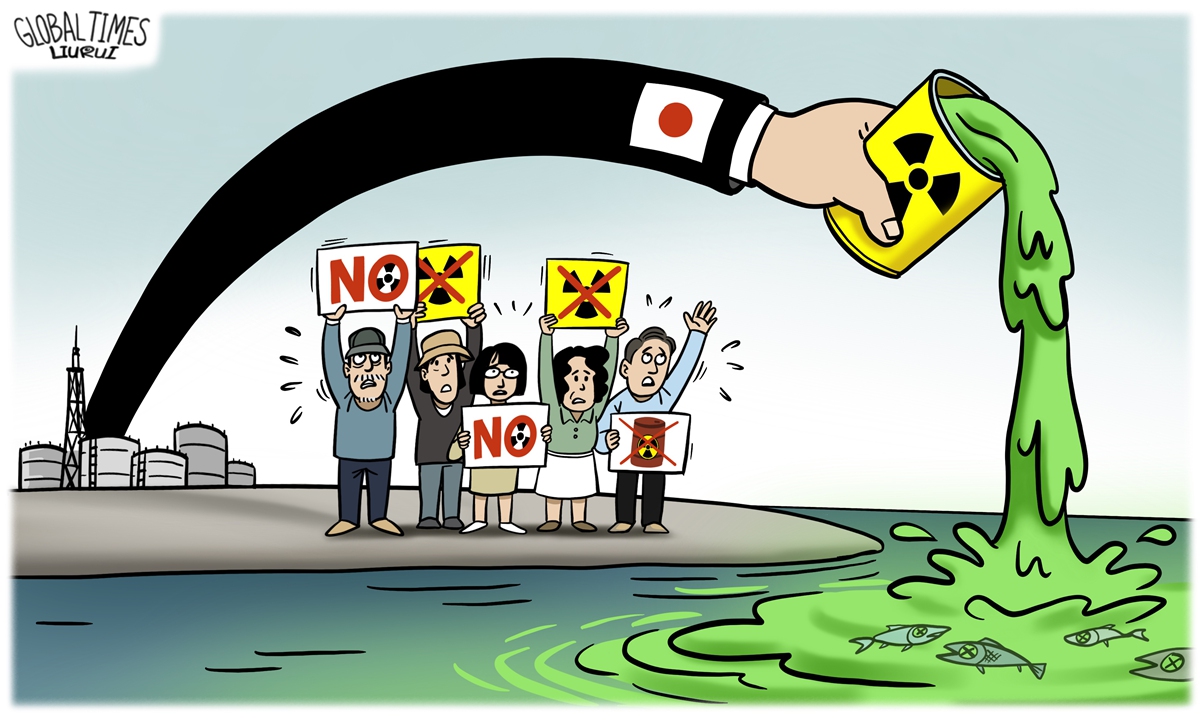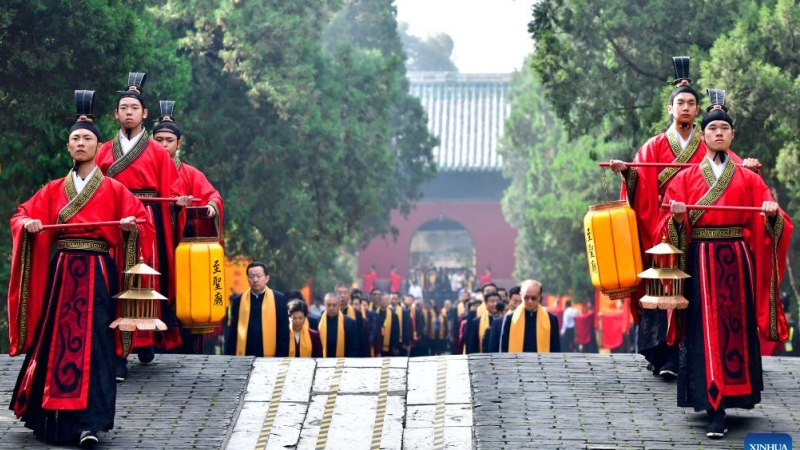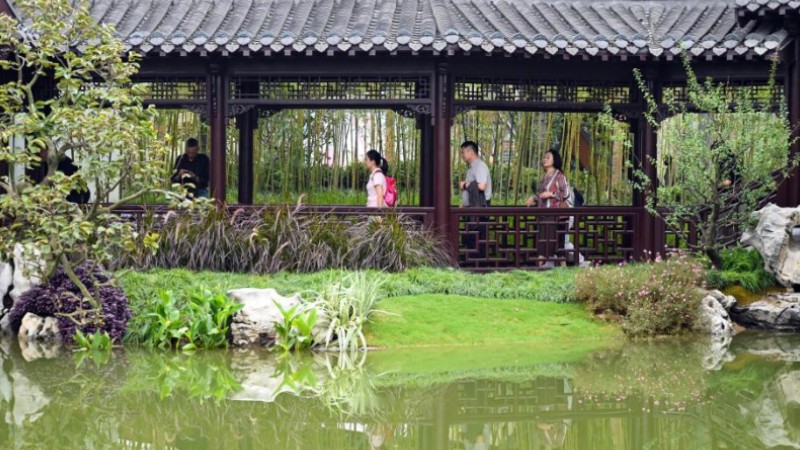Intl community urges Japan to be responsible as country starts 2nd round of dumping

Japan's dangerous move. Illustration: Liu Rui/GT
Japan's irresponsible decision to dump nuclear-contaminated water has again triggered international anger as it kicked off a second round with the Chinese Embassy in Japan expressing strong opposition to the country's unilateral move, which is passing on the risk of radioactive contamination to the world.
The dumping of nuclear-contaminated wastewater into the sea concerns the marine environment and human health. It is by no means a private matter of Japan, nor can it be decided by Japan alone, a spokesperson of the embassy remarked on Friday.
"We once again urge the Japanese government to face up to the opposition and serious concerns in Japan and from the international community, fully consult and conduct substantive communication with neighboring countries, and establish a long-term and effective international monitoring mechanism with the participation of neighboring countries and other stakeholders and handle the nuclear-contaminated water in a responsible manner," the spokesperson said.
The second round of dumping started on Thursday, and 7,800 metric tons of contaminated water will be released into the ocean over 17 days, according to media reports.
Citizen groups worldwide, including those in Japan, South Korea and China's Hong Kong Special Administrative Region, have taken to the streets in recent days to urge the Japanese government to stop its toxic dumping.
The South Korean government on Thursday brought the issue of Fukushima nuclear-contaminated water to the 18th International Marine Organization meeting held in London. Claiming Japan's dumping "meets international standards," Seoul called on efforts to ensure safe dumping while highlighting the need for transparent data sharing.
The International Atomic Energy Agency (IAEA) will send a task force to Japan in late October for a review of the dumping.
However, IAEA only has access to information provided by TEPCO (Tokyo Electric Power Company), which has been found guilty of lying repeatedly since the 2011 tsunami caused the nuclear meltdown at the Fukushima plant. Also, two South Korean media outlets in July have alleged that the Japanese government sent IAEA at least 1 million euros ($1.06 million) as a political payment to greenlight its dumping proposal.
Some observers therefore have become skeptical of whether IAEA can give a comprehensive review given its access to selected information.
Japan's dumping has dealt a blow to its fishery industry as well as overall reputation of Japanese products.
China's seafood imports from Japan in August dived 67.6 percent from a year earlier to 149.02 million yuan ($20.44 million), after a fall of 28.5 percent in July, per data from Chinese customs released in September. The data for September has not yet been released, but imports are expected to decline further as a sweeping ban on Japan's seafood was imposed on August 24, when Japan started the dumping.
Japan's seafood exports to South Korea also plunged in August, according to media reports.
The just ended Mid-Autumn Festival and National Day holidays gave a strong boost to China's catering industry, but customers remain careful when choosing where to eat.
The Global Times learned from several restaurants serving Japanese cuisine that they were frequently asked about the origin of their ingredients, while some placed noticeable signboards stating that none of their food was sourced from Japan.
"Even if our seafood is imported from northern Europe and South America, some customers may opt not to come due to an instinctive distrust," an employee at a Japanese restaurant in Beijing's Sanlitun area told the Global Times.
Photos
Related Stories
- 6.1-magnitude quake hits Izu Islands, Japan -- USGS
- Japan starts 2nd release of nuclear-contaminated wastewater into ocean despite protest
- China has ability, resolve to protect national interests, people's health: FM spokesperson
- Japan books trade deficit of 6.3 bln USD in August
- Japan's Okinawa governor says U.S. military base threatens peace
- Chinese expert slams Japan's discharge of Fukushima wastewater at UN Human Rights Council
- 2 dead, 3 injured in Japan's Tokyo construction site accident
- Suicide risks higher among cancer patients within 2 years of diagnosis: Japanese survey
- China calls for attention of the UN rights body to Japan's nuclear-contaminated water discharge
- Japanese PM reshuffles cabinet amid slipping support rates
Copyright © 2023 People's Daily Online. All Rights Reserved.









